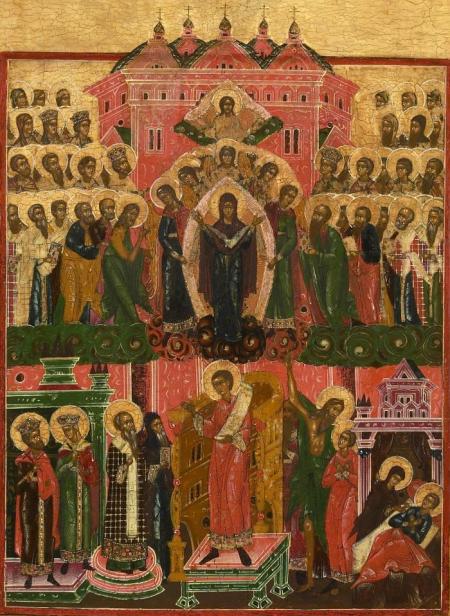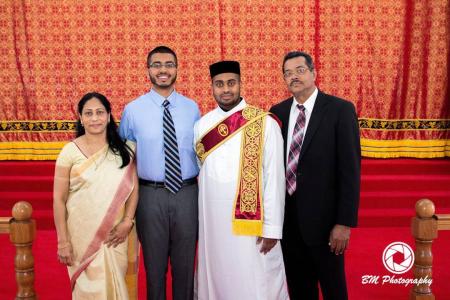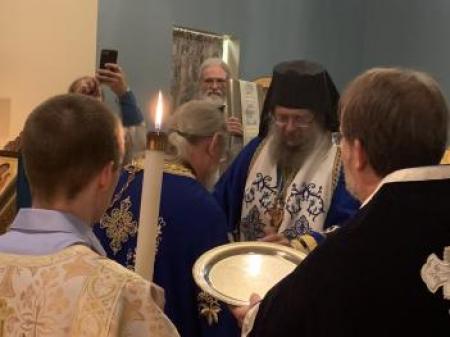Mirror, Mirror, on the Wall…

…What am I supposed to do with this all?
St. Vladimir’s Seminary is a challenging environment, and yet as I step back and think about why I’m here, I am inspired and motivated to continue and finish strong. I grew up in a clergy household with parents who exemplified such genuine selflessness and love that it gave me a foretaste of God’s unconditional love. They illustrated to me that the word “serve” doesn’t have to be limited to a mission trip or the parish. Regardless of the time or place, they live a life ready to serve the Lord and His people.
In high school, God planted in me the desire to come to seminary to gain more knowledge. Even though it was a result of envying my dad because he knew all the answers to my questions, I believe this desire was sent by God. As the years passed by, I started seeing a need in our Church for lay leadership and guidance for many young Orthodox Christians, especially those in college. Thus, my reason for a theological education changed from how seminary can serve me, to how seminary can prepare me to serve the larger community.
People often don’t understand why I’m in seminary. “What’re you going to do with a theology degree?” “Are you trying to be a priest?” “You’re wasting your years. You need to get married soon!” “Are you going to be a nun?” I have learned to smile at these questions, and they provide me with motivation to keep moving forward.
One’s expectations of what seminary life is like are guaranteed to be debunked. I have struggled on a much deeper level than ever before, and have discovered that I must overcome difficulties through the power of God rather than through willpower. I have wrestled with managing time and balancing school, church, and my personal life. It sometimes seemed as if no matter how hard I worked, I never felt satisfied.
In the process, I came to learn it’s not about finding time to write the perfect paper, or obtain perfect grades.When I started focusing more on drawing closer to God, I began to achieve balance between my course load, friendships, and lay leadership responsibilities. I learned that the purpose of seminary is not to absorb all the knowledge the Church has to offer, but to learn the right approach for handling any situation that arises in life and ministry.
God has opened up more doors than I ever imagined. The Holy Synod gave me the opportunity to be one of the seven delegates of the Malankara Orthodox Syrian Church for the Assembly of the World Council of Churches in Korea in 2013. This was such an enlightening experience; I was able to both see the impact of Christianity on a global level and meet inspiring Christian dignitaries from around the world, including St. Vladimir’s alumni. It was even more incredible to see the delegates of both Eastern and Oriental Orthodox Churches sitting in one room as a unit for a session. My group sessions in Korea taught me it is not uniformity that glorifies God, rather unity in Christ.
Thanks to seminary, I have strengthened my foundation in theology and acquired skills to help me as I plan to get my Masters in Social Work. I hope to incorporate my degrees in psychology and theology into social work. God has painted a clearer picture for me as I continue on this journey in serving Him and His people.
As I near my last term at St. Vladimir’s, I am exceedingly thankful: thankful to God for knowledge, lifelong friendships, my professors and mentors, confidence to lead conferences and retreats, continuous support and prayers of others, the challenges, the all nighters for papers and finals, the pumpkin carving night, ladies’ nights, prison ministry, Chef Nat’s amazing food, and last but definitely not least, my formation. I thought seminary was breaking me down by physically, mentally, and spiritually challenging me. As time progressed, I saw that it was a source of healing for my soul. Father John Behr’s words from orientation have stayed with me. I have come to understand that, “[I] am not here to find [myself] but to find Christ.”
-
Lijin Hannah Raju is in her second year of the Master of Arts program at St. Vladimir’s Seminary. She is a part of the Malankara Orthodox Syrian Church and comes from Dallas, Texas. Lijin holds a B.S. in Psychology, and hopes to pursue a Masters in Social Work after seminary and pursue a career as a social worker. Combining theology and psychology, she also looks forward to working with the youth of the Malankara Church to help bring a better understanding of Orthodoxy and to encourage an Orthodox way of life in all aspects. When she is not stressing about classes, Lijin loves to spend time and laugh with family and friends. Three of her favorite activities are playing football, trying good food, and making room for dessert.









